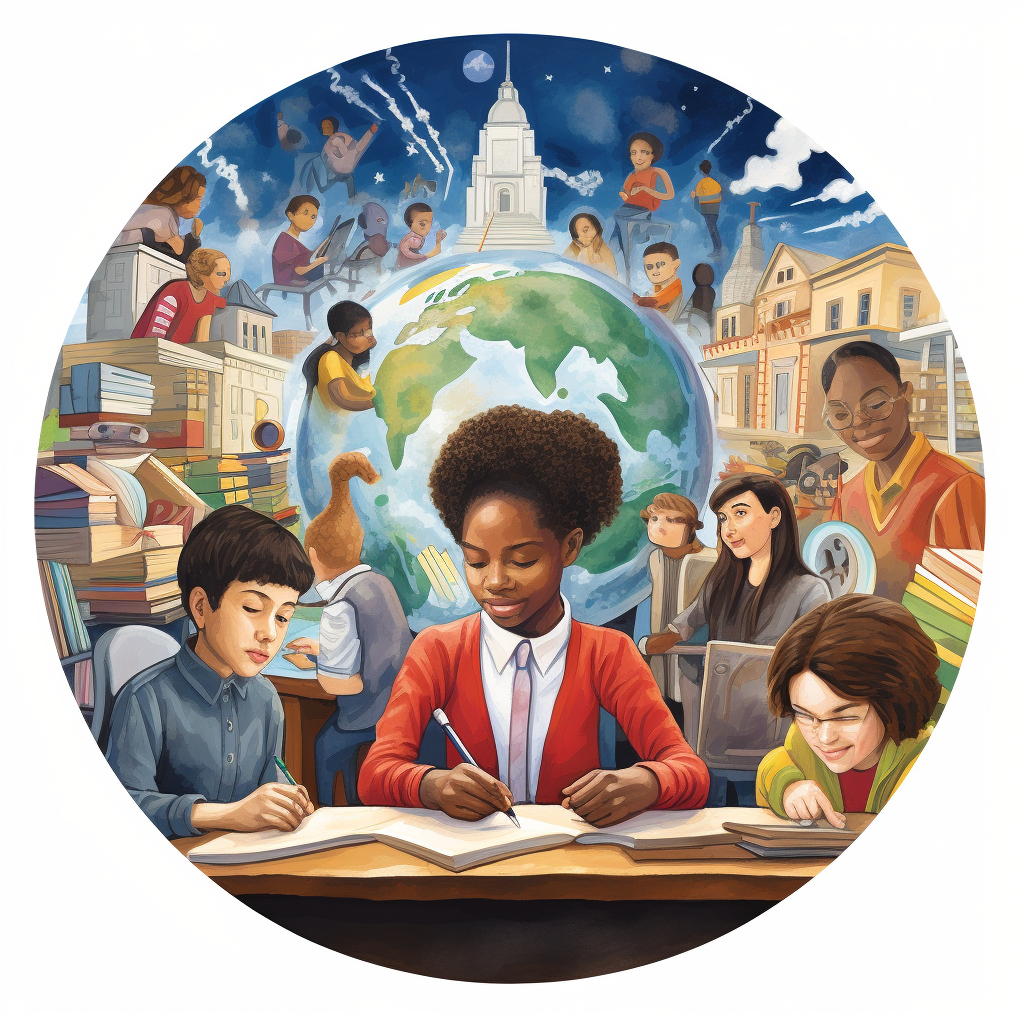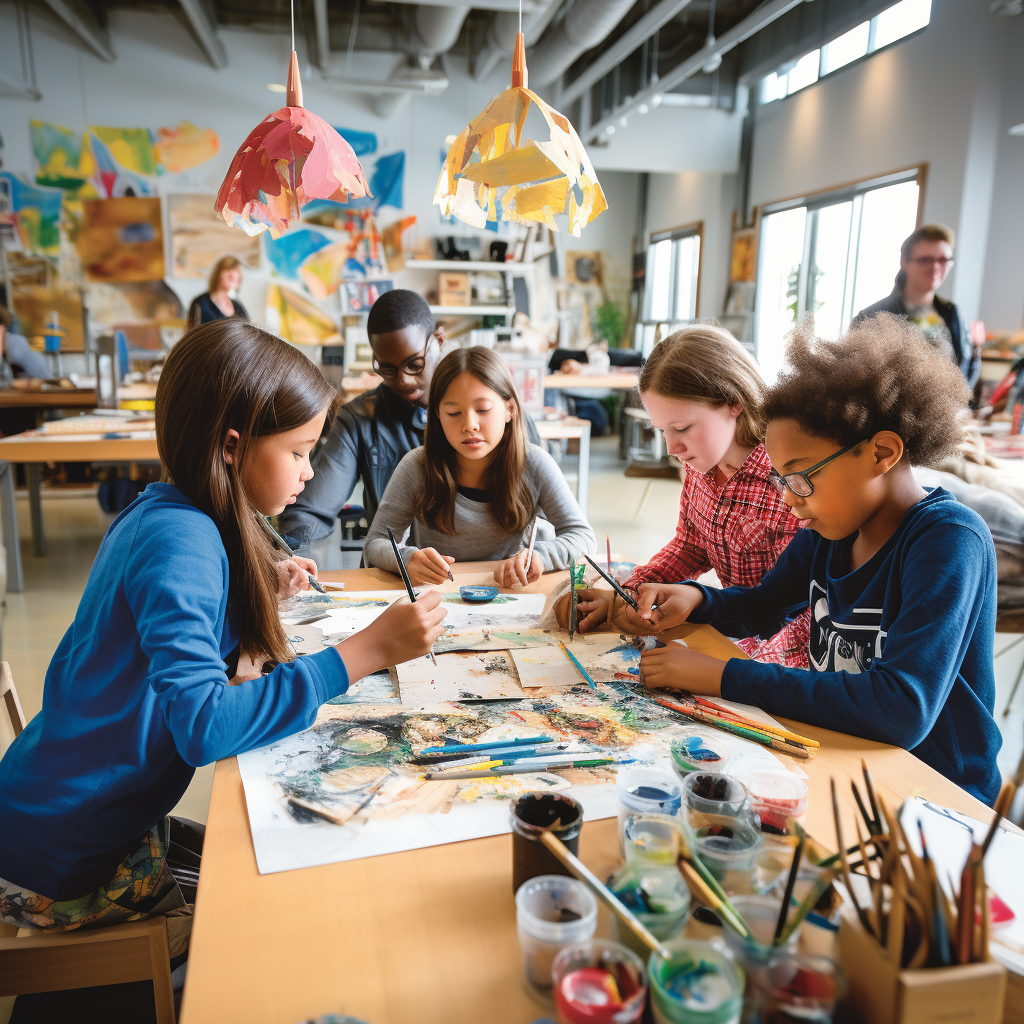What Happened to Gifted and Talented Education?
The concept of gifted and talented education has undergone significant transformation since its inception. Initially, programs were designed to identify and nurture the intellectual potential of students who showed extraordinary academic prowess. Over time, these programs have evolved to address a broader spectrum of abilities, including creative, artistic, and leadership talents.
Historically, the focus was on acceleration and enrichment within a traditional classroom setting. However, as educational research expanded, it became evident that gifted students require a more holistic educational approach that not only challenges them intellectually but also supports their unique social and emotional needs.
The shift towards individualized education plans (IEPs) and the integration of technology have further revolutionized how educators approach gifted and talented programs. These advancements allow for personalized learning, enabling students to engage with curriculum at their own pace and level of readiness.
At Vanguard Gifted Academy, we are at the forefront of this evolution, offering a curriculum that encompasses STREAM (STEM + Research and Arts), coupled with social-emotional learning to foster self-awareness and confidence in gifted children. Our innovative approaches ensure that each child's unique needs are met, preparing them for a future of academic and personal success.
If you're interested in learning more about the cutting-edge programs at Vanguard Gifted Academy, or if you'd like to schedule a tour to see our methods in action, please email us at gifted@vanguardgiftedacademy.org.
Challenges Faced by Gifted Education Today

Despite the progress in understanding the needs of gifted learners, gifted education today faces several challenges. One of the primary issues is the lack of consistent funding and resources across districts, which can lead to disparities in the quality and availability of programs. Another significant challenge is the identification process. It often relies heavily on standardized testing, which may not capture the full range of a child's abilities and can overlook gifted students from diverse backgrounds.
Furthermore, there is a philosophical debate regarding the best approach to educating gifted students. Some advocate for inclusive classrooms where gifted students learn alongside their peers, while others support specialized programs or schools that can more directly cater to their advanced learning needs.
In addition, gifted programs must navigate the delicate balance between fostering academic excellence and supporting the social-emotional development of the students. Gifted children can experience heightened sensitivity, perfectionism, and social isolation, which require careful attention and specialized support.
Finally, there is a call for professional development to equip teachers with the skills to recognize and nurture the unique talents of gifted students. Without proper training, educators may inadvertently neglect the potential of these learners, compromising their educational journey. Addressing these challenges is crucial to ensure that gifted education continues to evolve and serve its students effectively.
The Impact of Standardized Testing on Gifted Programs

The influence of standardized testing on gifted programs has been both pervasive and complex. On one hand, these tests can serve as tools for identifying students who may benefit from a more accelerated or enriched curriculum. However, the reliance on standardized assessments has also been criticized for its potential to misidentify or fail to recognize giftedness, especially among students from underrepresented groups who may not have had the same opportunities for test preparation.
Moreover, the emphasis on standardized testing can inadvertently shape the curriculum and teaching methods within gifted programs, sometimes resulting in a narrow focus that prioritizes test performance over deeper, more exploratory learning. This can stifle the creative and critical thinking skills that gifted programs are intended to foster, as educators might feel pressured to 'teach to the test' rather than to the individual needs and interests of their gifted students.
Additionally, the impact of standardized testing extends beyond identification and curriculum shaping; it also affects the self-perception and motivation of gifted students. Those who may not perform well on standardized tests due to test anxiety or alternative learning styles could develop a skewed sense of their own abilities, which can dampen their enthusiasm for learning and diminish their self-confidence.
It is therefore essential for educators and policymakers to consider multiple measures of assessment and to prioritize a holistic approach to identifying and nurturing giftedness. This would allow for a more inclusive and accurate recognition of the varied forms of intelligence and potential among all students.
Innovative Approaches to Gifted and Talented Education

In response to the challenges posed by traditional methods of gifted education, schools like Vanguard Gifted Academy are pioneering innovative approaches to better meet the needs of gifted learners. These approaches often emphasize personalized learning that respects each student's unique pace and interests. For instance, project-based learning allows students to dive deep into subjects they are passionate about, encouraging a sense of ownership and self-directed exploration.
Another innovative approach is the integration of STREAM—Science, Technology, Research, Engineering, Arts, and Math—into the curriculum. This interdisciplinary model fosters a more holistic educational experience, enabling students to make connections across subject areas and apply their learning in real-world contexts. Through STREAM, students develop not only academic skills but also critical soft skills like collaboration, creativity, and problem-solving.
Moreover, the focus on social-emotional learning (SEL) is crucial in innovative gifted education. SEL addresses the emotional and social needs of gifted students, who often experience heightened sensitivities and may feel out of sync with their peers. Incorporating SEL helps build the self-awareness and confidence necessary for gifted learners to thrive both academically and personally.
Gifted education is also expanding beyond the walls of the classroom through the use of technology and online platforms. Digital tools can provide access to advanced content and connect gifted students with like-minded peers and mentors, further personalizing and enriching their educational experience.
Vanguard Gifted Academy's Role in Revitalizing Gifted Learning

Vanguard Gifted Academy stands at the forefront of revitalizing gifted learning by actively addressing the evolving landscape of gifted and talented education. Recognizing the unique challenges and potentials of gifted children, this innovative school creates an environment where advanced learners can flourish through a curriculum tailored to their exceptional abilities.
At Vanguard, the emphasis is on personalized learning that aligns with each student's readiness levels. By crafting individualized learning plans, the academy ensures that students are neither under-challenged nor overwhelmed, promoting optimal intellectual growth and engagement. The specialized educators at Vanguard are adept at identifying and nurturing the diverse talents of each student, enabling a nurturing environment that is sensitive to the needs of the gifted population.
Moreover, Vanguard Gifted Academy incorporates a STREAM curriculum that transcends conventional STEM subjects by adding a robust Research component and integrating Arts into the mix. This approach not only stimulates intellectual curiosity but also encourages students to develop a well-rounded skill set. In this way, Vanguard prepares gifted learners for future academic endeavors and equips them with the tools necessary to become innovative leaders and problem-solvers in an ever-changing world.
The academy's commitment to social-emotional learning is another pillar in its mission to revitalize gifted education. Through a focus on SEL, Vanguard helps students build resilience, empathy, and interpersonal skills, which are just as vital as academic achievements for success in life.
Future Directions for Gifted and Talented Education
The trajectory of gifted and talented education is directed towards a future where the unique needs of gifted learners are met with innovative, research-based approaches and flexible educational models. Anticipating the future, educational institutions are now recognizing the importance of nurturing not just academic prowess but also the emotional intelligence and creativity of gifted students.
Emerging trends include the integration of technology and digital platforms to provide enriched learning experiences that can be customized to suit individual learning styles and paces. These technologies can facilitate more in-depth exploration of subjects and allow students to connect with peers and experts globally, fostering a collaborative learning environment.
Another significant development is the growing emphasis on interdisciplinary studies and problem-based learning. This approach encourages gifted students to apply their knowledge in real-world contexts, thus developing critical thinking and innovative problem-solving skills.
The focus on diversity and inclusion in gifted education is also gaining momentum. There is an increasing awareness that giftedness spans all cultures, socioeconomic statuses, and backgrounds, and educational programs are evolving to identify and support gifted individuals from underrepresented groups.
As these future directions take shape, Vanguard Gifted Academy remains a beacon of progress. The academy's commitment to personalized learning, STREAM education, and social-emotional development positions it to lead the charge in redefining what is possible in gifted education.
For more information or to schedule a tour, email us at Vanguard Gifted Academy.
